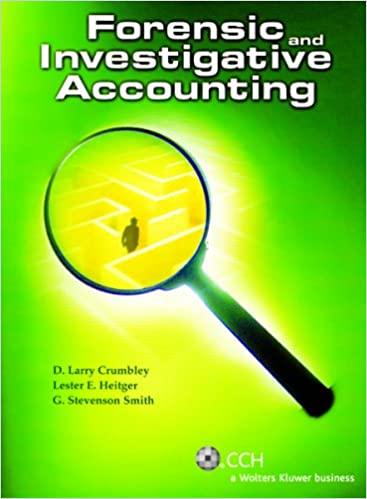Question
Problem 1. Property Exchanges to Controlled Corporation. Adam, Beth, Clayton and David are forming a bakery business, called ABCD Corp, and decided to organize as
Problem 1. Property Exchanges to Controlled Corporation. Adam, Beth, Clayton and David are forming a bakery business, called ABCD Corp, and decided to organize as a corporation. Adam Beth and Clayton will each own 300 shares of the common stock and David will own 100 shares of the stock (there are 1000 shares total of the corporation). Adam is contributing cash of $200,000, Beth is contributing equipment from a prior business that was originally purchased for $300,000 and was depreciated for tax purposes by $120,000 (current FMV is $200,000). Clayton is contributing a store front that he purchased two years ago for $250,000, but is currently worth only $200,000. David is contributing his time and will work full time for the business as the manager for the first year to train all the staff and get the business running on its own (Davids services would cost $67,000).
A. Determine any gains/losses or income that may be recognized incident to the formation of ABCD Corp. (make sure you consider the tax consequences pursuant to IRC Section 351). A concern is that the tax liability could result from incorporating a currently unincorporated business and the barrier to incorporate would present congress to enact section 351 to remove the barrier. So, congress thought that any gain on the exchange of property for stock should be a deferral until a future time.
B. Determine Adam, Beth, Clayton and Davids basis in their newly issued ABCD Company stock and ABCD Corps basis and tax consequences of the contributed property/services, if any.
C. Do your answers change if ABCD Corp already existed as Davids 100% owned company for two years before Adam, Beth and Clayton make their property contributions?
D. What would be the result if Beths property were worth $250,000 and so the Corporation gave her $50,000 cash in addition to her stock?
E. What would be the result if two years after formation, a capital call is made and each shareholder is required to contribute $100 of cash for each share owned? What if Beth wanted to meet the capital call with appreciated property?
Problem 2. Assume all of the same facts as Problem 1 above, except that each will receiving 25% of the common stock for their contributions of property and services.
A. What are the tax consequences of this deal (gains/losses/income recognized, basis of shareholders in stock, basis of corporation in property)?
B. How might the transaction be structured differently in such a case to provide for a more favorable tax result for the shareholders? What if David gave $25,000 cash as well as his services for his 25% interest?
Step by Step Solution
There are 3 Steps involved in it
Step: 1

Get Instant Access to Expert-Tailored Solutions
See step-by-step solutions with expert insights and AI powered tools for academic success
Step: 2

Step: 3

Ace Your Homework with AI
Get the answers you need in no time with our AI-driven, step-by-step assistance
Get Started


